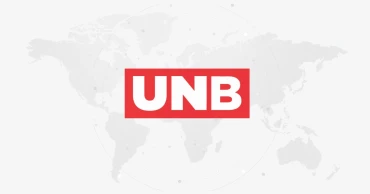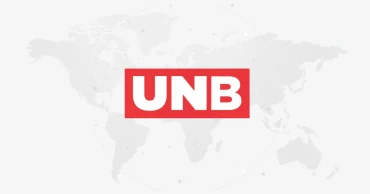Urban
On avg, each Bangladeshi family had loans amounting to Tk 70506 in 2022: BBS Survey
The average loan amount of each family in Bangladesh was Tk 70,506 in 2022, up from Tk 37,743 in 2016, according to Bangladesh Bureau of Statistics (BBS) data shared recently.
One-third of households in Bangladesh are now in debt. This information has emerged in the latest household income-expenditure survey of BBS.
According to the survey, 37 percent of the country’s households have taken loans or borrowed money last year.
Read more: Bangladesh's literacy rate rises to 74 percent, poverty down by 5.6 percent: Survey
During the survey – from January to December last year, an average of 37.03 percent of households reported taking loans or borrowing money. In the 2016 survey, 29.70 percent of the households were borrowing.
As such, in 6 years, the borrowing of families in the country has increased by more than 7 percent.
Last Wednesday, BBS published the preliminary results of Household Income and Expenditure Survey 2022.
Read more: Bangladesh’s total labour force is 7.34 crore, 26.3 lakh are jobless: BBS
More rural households in debt than in cities
According to the BBS survey, more households in the villages are in debt than in cities.
In rural areas, an average of 39.35 percent of families are in debt. In urban areas, this percentage is 32.11.
In 2016, the average household debt in urban areas was 22.10 percent. And in rural areas that percentage was 32.70.
Read more: Inflation rises to 9.33 percent in March, highest in 7 months
In 2022, the number of households in debt increased by an average of 10 percent in urban areas, and by 6.5 percentage in rural areas, the BBS survey stated.
2 years ago
ADB to fund urban transport, climate resilience, renewables projects worth $628 million
Asian Development Bank (ADB) is funding USD $628.29 million to implement 'Greater Dhaka Sustainable Urban Transport (BRT- Gazipur), 'Coastal Towns Climate Resilience and Third Public-Private Infrastructure Development Facility.
A loan agreement was signed between the Economic Relations Division (ERD) and ADB in this regard in Dhaka on Monday.
ERD secretary Sharifa Khan and Jiangbo Ning, Deputy Country Director and Officer-In-Charge, of Bangladesh Resident Mission, signed the deed documents on behalf of their respective side.
Greater Dhaka Sustainable Urban Transport Project (BRT- Gazipur) will be executed by the Road Transport and Highways Division and implemented by the Roads and Highways Department (RHD), Bangladesh Bridge Authority (BBA), and Local Government Engineering Department (LGED).
The objective of the project is to improve the quality of urban life in the Gazipur-Tongi area, establishing an efficient, sustainable, environment-friendly, affordable, and safe urban transport system through the construction of a 20.50 km long Bus Rapid System from Gazipur to the Airport.
ADB will provide an additional $100 million ordinary operations (Regular) loan which is repayable in 25 years with a grace period of 5 years.
Coastal Towns Climate Resilience Project will be executed by LGED under the local government division. The objective of the project is to strengthen climate and disaster resilience of the selected coastal towns at risk and improve the quality of life of women and poor in the locality.
15 Pourashovas from 6 districts of Barisal division, 5 Pourashovas from 3 districts of Khulna division, and 2 Pourashovas of Shariatpur district of Dhaka division are covered by this project. The estimated completion date of the project is 30 June 2029.
ADB's $250 million support for this project includes a $150 million ordinary operations (Concessional) loan, a $96 million regular loan, and $4 million grants. The loan is repayable in 25 years with a grace period of 5 years.
Read more: Bangladesh signs $200 million loan deal with ADB to boost micro-enterprise
The interest rate on concessional loans is 2 percent fixed. OCR (regular) loan interest rate is SOFR (Secured Overnight Financing Rate) + 0.50 percent, including maturity premium at the rate of 0.10 percent and commitment charge at the rate of 0.15 percent on undisbursed amount.
Third Public-Private Infrastructure Development Facility-2 will be implemented by Infrastructure Development Company Limited (IDCOL) to invest in infrastructure projects developed under the Public-Private Partnership (PPP) model.
Estimated completion date of the project is June 2027. The ADB loan for this project has two components- $262.29 million ordinary operations (Regular) and $16 million ordinary operations (Concessional) that will support investment in energy efficiency and renewable energy solutions. Both loans have a repayment period of 25 years, including a 5 year grace period.
Since 1973, ADB has been one of the largest multilateral development partners of Bangladesh extending development assistance to the country. ADB's total loan to Bangladesh till now is more than $27.844 billion and the total grant is about $0.541 billion.
Read more: Bangladesh mandates ADB to advise on $400million expressway connecting 10 economic zones
3 years ago
Rising inflation hurts rural people more than their urban counterparts: BBS
Rising trends of inflation has forced rural people to spend more to buy goods than urban dwellers, said a report of Bangladesh Bureau of Statistics (BBS).
The BBS report said the average inflation in rural areas rose to 6.20 per cent in November. At the same time, the average inflation in the city stood at 5.59 per cent.
Economists say the rise in diesel and kerosene prices has had an impact on the market. In early November, the government increased the price of diesel and kerosene by Tk15 per litre. As a result, fares of all transports have gone up. This has had an impact on overall inflation.
Zahid Hossain, former chief economist at the World Bank's Dhaka office, said the rise in transportation costs has affected the commodity market.
READ: BBS to invite fresh tender for 395,000 tabs from local manufacturers
As diesel and kerosene prices have risen, so have transportation costs. Fare is being taken higher than what has been increased.
The demand in the market is increasing due to these factors, along with rise in inflation.
The state-owned agency revealed that prices of almost all types of daily commodities including rice, pulses, flour are higher in villages than in cities. The people of the village have to spend more money for transportation, medical treatment and furniture
In November, a rural consumer bought a product for Tk106.20, while a customer in the city bought the same product for Tk105. 59. In urban areas, food inflation is 4.37 per cent, while in rural areas it is 5.90 per cent. However, non-food inflation is higher in urban areas than in rural areas. In November, non-food inflation rose to 6.99 per cent in urban areas and 6.78 per cent in rural areas.
READ: HC: Only MBBS, BDS holders can use 'Dr' before their names
According to the BBS, overall inflation in the country rose to 5.98 per cent in November from 5.70 per cent in the previous month (October). Besides, food inflation rose to 5.9 per cent from 5.62 per cent in October. Non-food inflation rose to 6.17 per cent from 6.78 per cent.
4 years ago
Urban plastic consumption triples in 15 years: World Bank
Sustainable management of plastic waste and controlling the increasing trend of pollution is very crucial to ensure green growth for Bangladesh, said the World Bank.
A new report of the World Bank said the country’s annual per capita plastic consumption in urban areas tripled to 9.0 kg in 2020 from 3.0 kg in 2005.
With rapid growth and urbanization, Bangladesh faced a sharp increase in both plastic use and pollution. The COVID-19 pandemic has escalated the problem of mismanaged plastic waste,” said Dandan Chen, World Bank Acting Country Director for Bangladesh.
Also read: Global deal on plastic pollution is urgent: Speakers
“Going forward, sustainable plastic management—from designing a product, to minimizing plastic use, to recycling—will be critical to ensure green growth for the country. We commend the government’s commitment to implement a National Action Plan to beat plastic pollution," she said.
The ‘Towards a Multisectoral Action Plan for Sustainable Plastic Management in Bangladesh’ report provides a blueprint for managing plastic pollution over the short term (2022–2023), medium-term (2024–2026), and long-term (2027–2030), which will require an integrated cross-sectoral approach.
Bangladesh’s National Action Plan for Sustainable Plastic Management sets a target of recycling 50 percent of plastics by 2025, phasing out targeted single-use plastic by 90 percent by 2026, and reducing plastic waste generation by 30 percent by 2030 from 2020/21 baseline.
The plan, which is aligned with the 8th Five-year plan, was based on needs collectively identified by the Ministry of Environment, Forests, and Climate Change, Department of Environment, private sector, and other stakeholders.
The Action Plan focuses on circular use of plastic based on a 3R strategy: Reduce, Reuse, Recycle. A circular economy will help create new value chains, green skills, employment, and innovative products while addressing social and environmental challenges.
The country’s annual per capita plastic consumption in urban areas tripled to 9.0 kg in 2020 from 3.0 kg in 2005. Dhaka’s annual per capita consumption of plastic is 22.5 kg, significantly higher than the national average.
Also read: Government to implement an action plan for sustainable plastic management: Environment Minister
COVID 19 pandemic has worsened plastic pollution, especially from single-use plastic used in masks, gloves, and Personal Protective Equipment. A large part of the plastic waste is dumped in water bodies and rivers, the report said.
Bangladesh progressively took steps in curbing plastic pollution, with varied outcomes: in 2002, Bangladesh was the world’s first country to ban plastic shopping bags. However, after some time, plastic pollution increased again. The Jute Packaging Act 2010 for six essential items (paddy, rice, wheat, maize, fertilizer, sugar) promoted an alternative to plastic packaging.
In 2020, the High Court directed concerned authorities to ban Single-Use Plastic in coastal areas and all hotels and motels across the country.
“To implement the National Action Plan focusing on 3R strategy, commitment from all stakeholders, including citizens, the government, private sector, development partners, and citizens will be important,” said Eun Joo Allison Yi, World Bank Senior Environment Specialist, and co-author of the report.
To implement the action plan, the report identifies policy reforms, technologies, infrastructures, investment, and institutional capacity-building needs. The report was prepared in collaboration with the Department of Environment and PROBLUE, a multi-donor trust fund.
4 years ago


.jpg)
.jpg)

